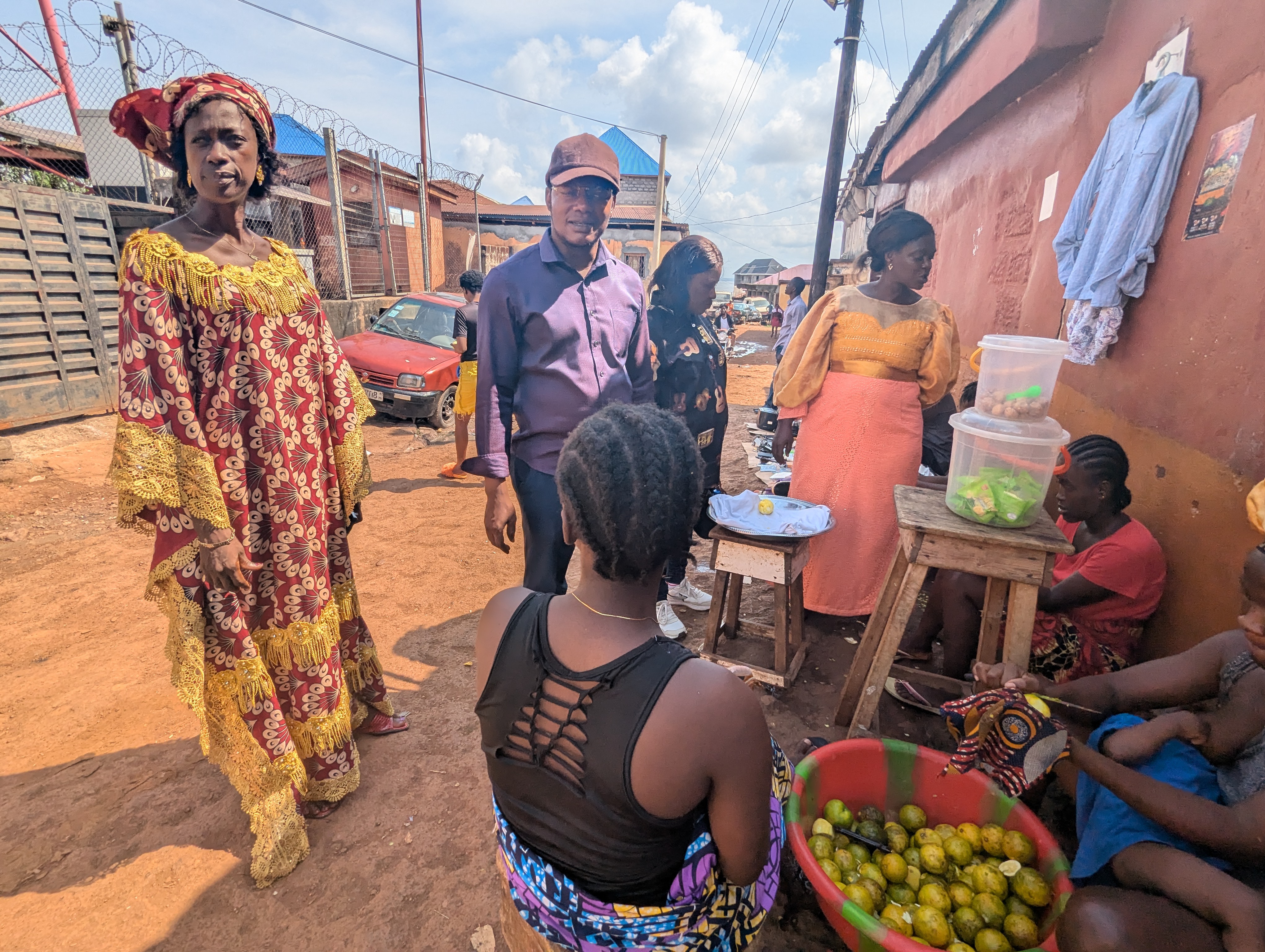The United Nations has declared 21 September as the International Day of Peace. This year, the day will be marked with the motto “The Right to Peace - The Universal Declaration of Human Rights at 70”.
Búsqueda
Region
Country
Type
Large-scale violent conflicts are devastating in many ways. They cause death, suffering, destruction of infrastructure and resource depletion. Somewhat less visible though, is how they tear apart the delicate social fabric within and between communities.
Significant progress has been made in democratizing politics and governance in Haiti during the past two decades. Several challenges however, including extreme poverty, wide economic inequalities, weak democratic institutions and a polarized political landscape remain. Opposition political parties and citizens often express their frustrations through protests, which regularly degenerate into violence.
Democracy is pivotal in the pursuit for peace. The global conflict-prevention agenda that the UN Secretary-General seems committed to revitalizing is largely based on this assumption.
International IDEA is supporting constitution building processes as an integral part of the democratic transition in Myanmar. By working with various state institutions, ethnic based organizations, political parties, civil society organizations and academia, International IDEA supports a more inclusive and well-informed debate on constitutional issues also to create a common understanding of federal and constitutional principles.
Looking at the news around the world today, one cannot help but wonder if peace is being taken for granted? While some of us are fortunate to enjoy peaceful lives, others live in conflict zones where livelihoods are endangered and families are threatened. Like democracy, peace has to be nurtured, promoted and protected.
Disclaimer: Views expressed in this commentary are those of the staff member. This commentary is independent of specific national or political interests. Views expressed do not necessarily represent the institutional position of International IDEA, its Board of Advisers or its Council of Member States.
إخلاء مسؤولية: الآراء المعبر عنها في هذا التعليق خاصة بموظفي المؤسسة. يعد هذا التعليق مستقلاً عن أية مصالح وطنية أو سياسية. الآراء المعبر عنها لا تمثل بالضرورة موقف المؤسسة الدولية للديمقراطية والانتخابات ولا هيئة مستشاريها أو مجلس دولها الأعضاء.
The ruling parliamentary group Peruanos por el Kambio and International IDEA co-organized an internal working meeting in August 2018, in which the members of Congress addressed the two central topics of the constitutional reform, which the President of the Republic proposed to Congress, i.e. the reform of the administration of justice and the political reform.
El pasado mes de agosto, el Grupo Parlamentario oficialista Peruanos por el Kambio e IDEA Internacional coorganizaron una reunión interna de trabajo durante la cual los congresistas abordaron los dos temas centrales de las propuestas de reforma constitucional planteados por el Presidente de la República al Congreso, a saber; la reforma de la administración de justicia y la reforma política.
En el espíritu de fomentar la rendición de cuentas y la transparencia, a finales de agosto de 2018, el jefe de la Oficina para México y Centroamérica, el Dr Miguel Ángel Lara Otaola, se reunió con el Dr Francisco Javier Acuña Llamas, comisionado presidente del Instituto Nacional de Transparencia, Acceso a la Información y Protección de Datos Personales (INAI) de México, para explorar posibilidades de colaboración entre ambas instituciones.
In the spirit of the importance of accountability and transparency, at the end of August 2018, the Head of Programme for Mexico and Central America, Dr Miguel Ángel Lara Otaola, met with Dr Francisco Javier Acuña, Commissioner President of the National Institute of Transparency, Access to Information and Protection of Personal Data<
Is democracy in decline around the world? If so, is it also the case in Myanmar? This year’s International Day of Democracy celebrations in Yangon were an opportunity to have broad ranging discussions on the state of democracy around the world.
Disclaimer: Views expressed in this commentary are those of the staff member. This commentary is independent of specific national or political interests. Views expressed do not necessarily represent the institutional position of International IDEA, its Board of Advisers or its Council of Member States.
Declaración: Las opiniones expresadas en este comentario son las del miembro del personal. Este comentario es independiente de intereses nacionales o políticos específicos. Las opiniones expresadas no representan necesariamente la posición institucional de International IDEA, su Consejo de Asesores o su Consejo de los Estados Miembros.
In 2017, International IDEA launched the first Global State of Democracy report. The report provides evidence-based analysis and data on the global and regional state of democracy, and contributes to the public debate on democracy, informs policy interventions and identifies problem-solving approaches to challenges affecting the quality of democracy.
El Director Regional para América Latina y el Caribe de IDEA Internacional, Daniel Zovatto, participó, en calidad de invitado especial del Consejo Nacional Electoral (CNE) y la Registraduría Nacional de Colombia, en la consulta popular sobre medidas anticorrupción que tuvo lugar el pasado 26 de agosto.
This article is available in English.
The Regional Director for Latin America and the Caribbean of International IDEA, Daniel Zovatto, participated, as a special guest of the National Electoral Council (CNE) and the National Registry of Colombia, in the popular consultation on anti-corruption measures that took place on August 26.
México e IDEA Internacional tienen una larga historia de colaboración. Con la apertura de la oficina subregional para México y Centroamérica en abril de 2018, la relación pasó a un siguiente nivel. Para cumplir sus nuevas encomiendas, se estableció un programa de trabajo con el Tribunal Electoral del Poder Judicial de la Federación (TEPJF), máximo órgano de justicia electoral en México.
Mexico and International IDEA share a long history of collaboration. Their relationship was taken to the next level on April 2018, when the Sub-regional Office for Mexico and Central America started its activities. To carry out its new programmes, a strategic partnership was established with the Electoral Tribunal of the Federal Judiciary (TEPJF), the highest electoral justice body in Mexico.
